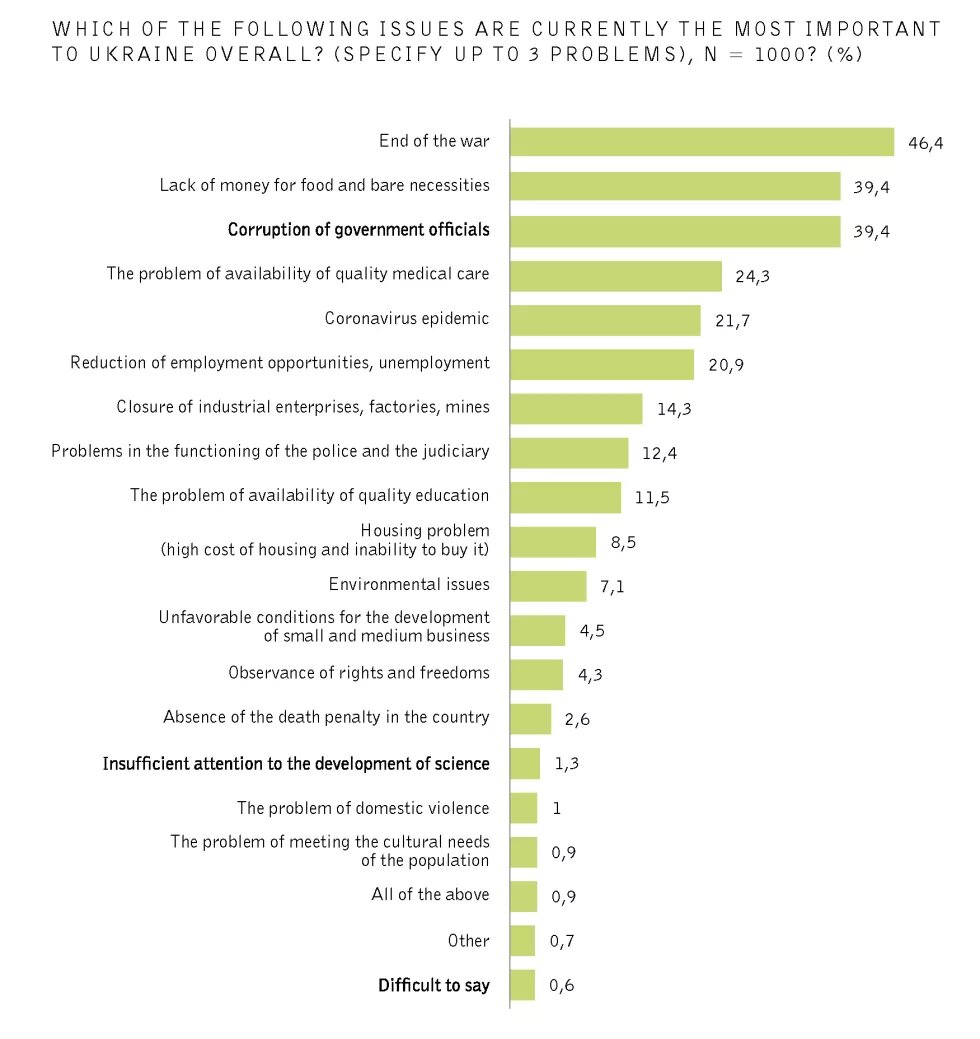
“Human security: assessment and expectations of the residents of the four oblasts of Ukraine (Donetsk, Luhansk, Zaporizhia and Kherson oblasts)”: presentation of the research results.

On November 16 an online presentation was held to report on the study “Human security: assessment and expectations of the residents of the four oblasts of Ukraine (Donetsk, Luhansk, Zaporizhia and Kherson oblasts)”, conducted by the team of Heinrich Boell Foundation, Kyiv Office — Ukraine together with “Socioinform” Sociological Research Center.
The research presents consolidated data on security perceptions and public expectations in both oblast centres and small towns and villages. The concept of ‘security’ explores aspects of law enforcement, personal, economic and environmental security. The study presents how security perceptions influence the political decisions of residents. It presents recommendations for national, subnational, local levels, and international community.
According to the received data, at the level of the country as a whole, survey participants primarily emphasize the problem of ending the war (46.4% of all respondents), lack of money for food and basic needs (39.4%), and corruption of government officials (39.4%).
At the level of the municipality the problem of lack of money for food and basic needs (32.2%), the problem of availability of quality medical care (29.9%), and unemployment (29.3%) come to the fore.
The populace is concerned with security in the broader sense—not just physical security, says Oksana Mikheieva (Oksana’s presentation in Ukrainian), one of the research authors, professor of the Sociology Department at the Ukrainian Catholic University in Lviv, visiting professor at Viadrina Institute for European Studies. In particular, this refers to political, economic, social security, etc. which fosters a favorable living environment. Such perception highlights how relevant the term ‘human security’ is.
The main components of security for participants are financial and physical security (with an emphasis on protection from violence in everyday life); access to quality, guaranteed and affordable medical services; freedom of expression and protection from persecution for the political or civil position etc.
Some respondents paradoxically combine a sense of belonging to the European space and feeling “part of the unity of former Soviet republics.” This is the most striking generational difference among respondents.
The research covered all types of settlements in south-eastern oblasts of Ukraine: oblast centres, small towns and rural settlements, big and small villages. “We conducted 1000 interviews, 8 focus group discussions and 8 in-depth interviews”, said Natalia Zaitseva-Chipak, director of Ukrainian Center for Public Opinion Research “Socioinform”. She also emphasized that the lack of Internet access was not an obstacle for quality representative data collection, since their moderators and interviewers conducted on-site face-to-face surveys.
As Yevhen Vilinskyi, First Deputy Head of the Donetsk Oblast Civil-Military Administration says, very interesting observations arise when evaluating the effectiveness of politicians’ actions stemming from quick, short-term decisions. The topic of ‘paternalism’ is actively present, “that is why eastern regions often cherish the image of the factory as a key site. This is one of the examples of ‘paternalism’ that somehow need to be dealt with.”
To sum up, Yevhen Hlibovytskyi, (speaker’s presentation), founder of pro.mova expert company, made recommendations for national, subnational, local levels, and international community. Among these are the importance of reducing anxiety, reducing uncertainty, and avoiding zero-sum logic. It is necessary to apply and develop strategy planning on both national and local levels. Above that, the key point is to ensure education and development of critical thinking, which form better understanding of political processes and correspondent expectations.
Learn more about the research by following the link.
See the live event here.
Презентація дослідження «Безпека людини: оцінка та очікування» - Heinrich Böll Stiftung Ukraine
 Watch on YouTube
Watch on YouTube


